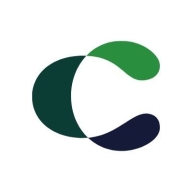

OpenText Core Application Security and Contrast Security Assess are competitors in application security, each with distinct advantages. Contrast Security Assess stands out due to its superior features and return on investment.
Features: OpenText Core Application Security offers comprehensive vulnerability management, automated testing, and seamless DevOps integration. Contrast Security Assess provides real-time analysis, in-depth application insights, and CI/CD pipeline integration for instant feedback.
Room for Improvement: OpenText Core Application Security could enhance real-time threat detection, integration with third-party tools, and customization options. Contrast Security Assess might improve pricing flexibility, expand language support, and optimize resource usage during scans.
Ease of Deployment and Customer Service: OpenText Core Application Security is known for straightforward deployment and excellent customer service, ensuring minimal setup time. Contrast Security Assess offers efficient deployment coupled with proactive customer support, enhancing user experience.
Pricing and ROI: OpenText Core Application Security is favored for competitive pricing and rapid ROI, appealing to budget-conscious buyers. Contrast Security Assess, while more expensive, justifies its cost through comprehensive features and improved security performance, leading to a higher ROI.
| Product | Mindshare (%) |
|---|---|
| OpenText Core Application Security | 3.2% |
| Contrast Security Assess | 1.3% |
| Other | 95.5% |

| Company Size | Count |
|---|---|
| Small Business | 2 |
| Midsize Enterprise | 3 |
| Large Enterprise | 6 |
| Company Size | Count |
|---|---|
| Small Business | 17 |
| Midsize Enterprise | 8 |
| Large Enterprise | 44 |
Contrast Security is the world’s leading provider of security technology that enables software applications to protect themselves against cyberattacks, heralding the new era of self-protecting software. Contrast's patented deep security instrumentation is the breakthrough technology that enables highly accurate assessment and always-on protection of an entire application portfolio, without disruptive scanning or expensive security experts. Only Contrast has sensors that work actively inside applications to uncover vulnerabilities, prevent data breaches, and secure the entire enterprise from development, to operations, to production.
OpenText Core Application Security offers robust features like static and dynamic scanning, real-time vulnerability tracking, and seamless integration with development platforms, designed to enhance code security and reduce operational costs.
OpenText Core Application Security is a cloud-based, on-demand service providing accurate and deep scanning capabilities with detailed reporting. Its integrations with development platforms ensure an enhanced security layer in the development lifecycle, benefiting users by lowering operational costs and facilitating efficient remediation. The platform addresses needs for intuitive interfaces, API support, and comprehensive vulnerability assessments, helping improve code security and accelerate time-to-market. Despite its strengths, challenges exist around false positives, report clarity, and language support, alongside confusing pricing and package options. Enhancements are sought in areas like CI/CD pipeline configuration, report visualization, scan times, and integration with third-party tools such as GitLab, container scanning, and software composition analysis.
What features define OpenText Core Application Security?Industries like mobile applications, e-commerce, and banking leverage OpenText Core Application Security for its ability to identify vulnerabilities such as SQL injections. Integrating seamlessly with DevSecOps and security auditing processes, this tool supports developers in writing safer code, ensuring secure application deployment and enhancing software assurance.
We monitor all Application Security Tools reviews to prevent fraudulent reviews and keep review quality high. We do not post reviews by company employees or direct competitors. We validate each review for authenticity via cross-reference with LinkedIn, and personal follow-up with the reviewer when necessary.